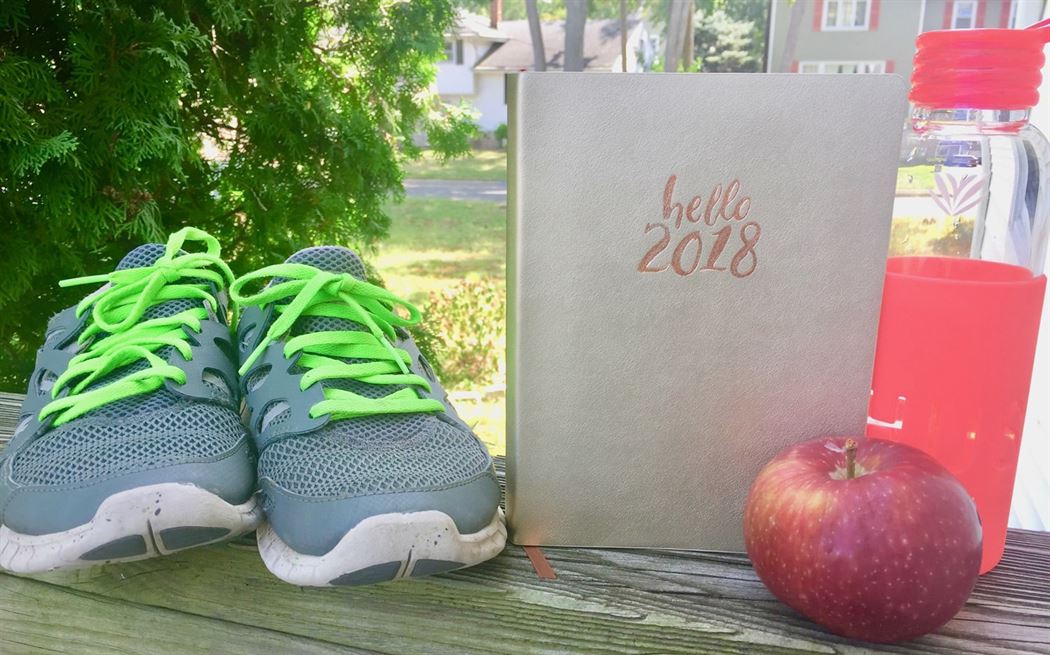
Several items (from left to right, a pair of sneakers, planner, apple, and water bottle) that help to contribute towards a healthy year. Photo by Chanila German
Whether it is your first or last year at MSU, the start of the semester is time for fun! Getting adjusted to student life, socially and academically, can often leave your health neglected. Keeping your body fueled and nourished is a must on your back-to-school list, and it can be cheaper than your textbooks. Start this semester with your healthy foot forward with these five tips!
Snack smartly. To avoid going too long without food and then overeating during your next meal, pick up fruit, veggie packs or nuts in the convenience store locations in the Student Center or in Blanton Hall. Carrying these healthy snacks in your bag when hunger hits during class will help give you the energy to carry on and use your brain to its full potential. No one likes “brain fog,” especially during a quiz! Additionally, since dorm life may not be conducive to practicing your chef skills, fruit and veggie snack packs aid as a no-prep option. Living kitchen-less doesn’t mean you can get all the nutrients you need to power you through college. This is for you too, commuters!
Stay hydrated with water by investing in a reusable bottle. As you walk around campus, you’re losing more water than you realize. Not only will drinking water throughout the day reduces the risk of dehydration, which plays a role into brain fog, but it also promotes fullness. Thirst cues get confused for hunger cues. Drink water the next time you’re debating if you’re hungry and then see how you feel!
Make sure to exercise. To maintain a good balance in your health make sure to do more than just walking to your next class. Take a few minutes of your day to go to the Student Recreation Center. This will help you to become more active and awake in your classes.
Stay mindful. Speaking of hunger cues, have you checked in with yours lately? When making new friends or reuniting with old ones, going to Au Bon Pain is a great way to hang out. Remember, you don’t have to eat if you’re not hungry! It’s about being in touch with your body’s needs. Don’t let someone else’s hunger influence your own. Eat when you’re hungry; don’t eat when you’re not.
Monitor portion sizes. The freedom to load up your plate with food in the cafeteria is exciting, but portioning too much may lead to overeating. Start off with smaller portions, and if still hungry after waiting 20 minutes – the average time it takes your stomach to tell your brain you’re full – then go back for more. Here are some “handy” tools to help portion control. One serving of protein, such as lean chicken, fish or plant sources, should be the size of your own palm. Whole grains and other grains should be the size of your fist. Vegetables should be the size of an open handful, and fats such as butter, dressings or oils should be the size of your thumb.
Scribble these tips in your planner or set reminders on your phone to get you through the semester with your healthy foot forward!



